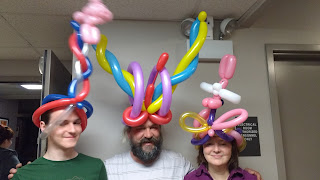My friend is brave
It is hard to know what is going on anywhere these days. Yes, we have Facebook and other social media, but to really get inside events is extremely difficult. I can only discern or interpret so much from pictures. That being said, this much I know: My friend is brave.
Or stupid. I’ve often wondered about that thin line between being a risk taker and a hero. Between being someone who runs into a burning house and someone who runs into a burning house to save another life. Right now the war between Russia and Ukraine is a huge firestorm, wrecking countries and the world economy. In Putin’s eyes and convoluted logic he is being brave and taking a risk to invade another country (or non-country, again his weird thinking) to de-Nazi-fy it. It’s all a play on words and myths and folk legend.
Meanwhile. The people living in Russia and Ukraine reap the havoc. I have friends in Russia that I met through Couchsurfing when they stayed with us several years ago. It was a rough introduction. Max and his wife Tamar and their son Kuzya arrived with very little English. I wondered—your written English is so good. Max, nodded, Google translate. Ohhhhh. This was going to be rough. I showed them around and asked if they’d like to sit and have a tea or coffee. He declined. In the morning I again invited them to have a tea or coffee. Again, an abrupt no. But, could he have the password for the Internet. I said yes, on one condition, they come to my room for cake and a drink that evening.
It took a while for the ice to break. Some of it I attributed to language barrier and some to culture. Max remarked to me that everyone here was so friendly. People on the streets in St. Petersburg do not greet one another, do not say hi to strangers, barely look up when passing another. Here it was so warm.
Max liked to stand out front of the building and light his pipe and have a smoke with the other smokers. He soon was drinking coffee with members of the community while Tamar gave painting classes. They made do conversing in Russian and their meager English. Kuzya a lanky long-haired teen made friends and dreamed about coming back one day to the US possibly for school.
Max and Tamar came again for a second visit and Kuzya came back for a whole summer. He was shy and did not talk a lot. I was surprised to hear from Max that Kuzya spoke better English than the English teach at his high school. It was hard for me to understand. They lived part time in St. Petersburg and part time in the country, a very small remote village where they lived taking care of his elderly father. Where they foraged mushrooms! Tamar explained to me: one time driving to the main road she once saw a wolf on a hilltop not far away. Or am I misremembering, it perhaps was a bear. Both play large roles in Russia’s mythology, it’s symbolic past.
Somehow I thought our paths would continue to cross. Neither of us could have predicted a pandemic, foreseen a war, the utter tumult of lives uprooted. Me, leaving Chicago after thirty-some years and Max and his family desperate to leave Russia.
Kuzya was prime fodder to be thrown into the front lines. But he was no soldier. Everything about this young man says that he would make a better contemplative, a spiritual seeker, a peacenik rather than a fighter, someone with a Kalashnikov rifle. Max asked for help to get Kuz out. We wrote letters, but at the time, currently, the US is not issuing Visas to this demographic unless there are special circumstances. I was circumspect in my messages to Max; I didn’t want to get anyone into trouble.
Early winter we got word: Kuzya and Tamar made it to Argentina. Apparently that country is very open. Recently Max and two of his older grandsons, soon to be military age, joined them in Argentina where there is now an enclave of other ex-pat Russians. The weather is warm, people are welcoming, and for right now he makes dumplings and sells them in the park while Tamar continues to paint and offer masterclasses.
Kuzya? The shy pacifist, he gave a speech at a protest outside the Russian embassy in Buenos Aires. What I feel in my heart—because there is no way to really know about the situation—is fear for his safety and pride. I’m proud I know this person, yet worried. He is a fire runner and a hero.
I wish you luck, my brave friend.




Comments